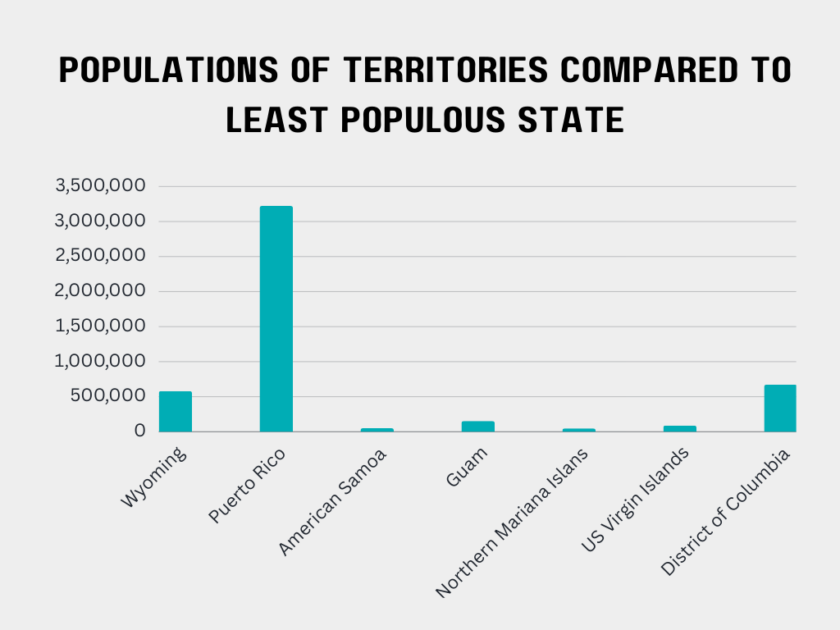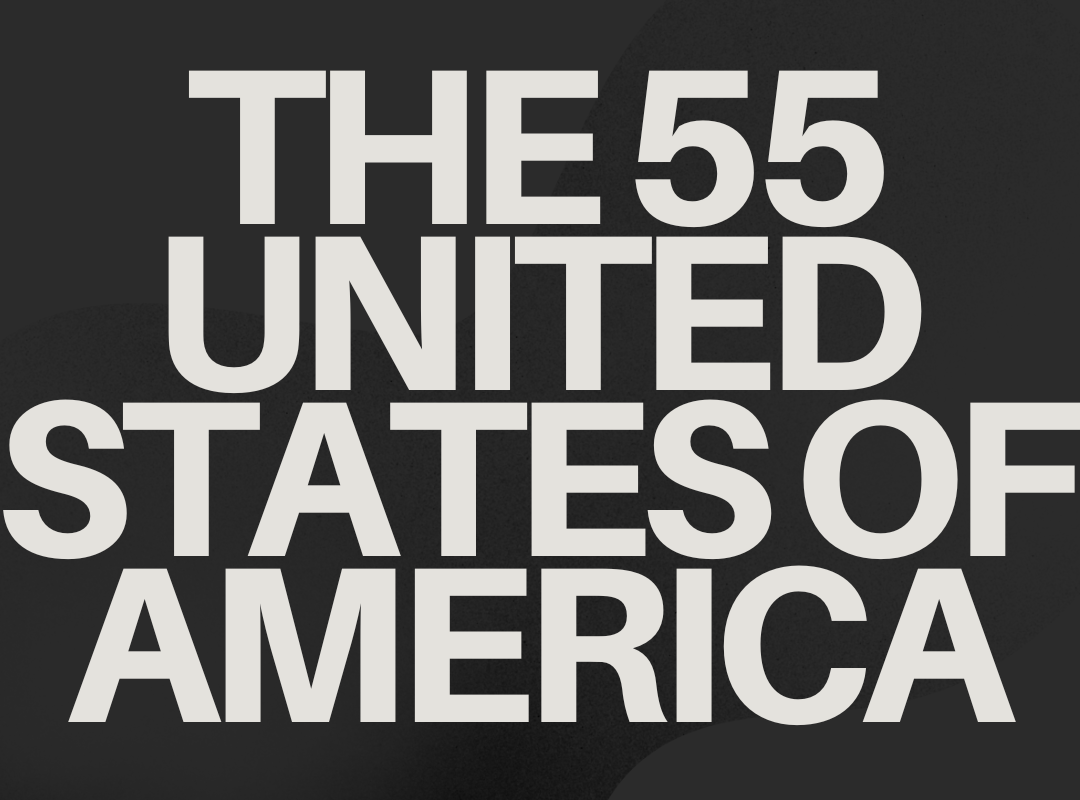Despite having elected representatives in the House, American citizens living in the United States territories have been denied voting rights in US elections because of the location of their residence.
In the 2020 presidential election, more than 3.5 million Americans were denied the right to vote based on where they lived. For citizens living in any of the United States territories, being denied this fundamental right isn’t new. In fact, despite both major political parties allowing the territories to vote in primaries, citizens living outside of the contiguous states have been denied the right to participate in electing the next president.
Each of the six following territories vote to select one representative to the United States House of Representatives: Guam, Puerto Rico, American Samoa, District of Columbia, US Virgin Islands and Northern Mariana Islands. However, these Representatives are not allowed to vote like the rest of the general assembly in Congress.
Under the rulings outlined by the Supreme Court in 1898 following the annexation of the Philippines, Puerto Rico and Guam, the territories were not part of, but belonged to the United States. Almost 20 years later, this ruling was partially reversed under the Wilson administration, when a few of the territories were legally granted citizenship. The Philippines later gained their independence in 1946.
This doctrine, which the United States still holds, contradicts the 1954 Brown v. Board of Education ruling which ended the precedent of “separate but equal.” The otherness of territory status does not legally equate to statehood, nor does it adequately provide the rights which the persons of the territories deserve.
Under the 14th Amendment, citizenship is given to all those “born or naturalized in the United States, and subject to the jurisdiction thereof.” Under territory status, the Citizenship Clause clearly applies to the disenfranchised citizens of the territories.
This Constitutional violation can be further elaborated upon by the 15th amendment, which states “the right of citizens of the United States to vote shall not be denied or abridged by the United States or by any State on account of race, color, or previous condition of servitude.”
Arguments proposed against statehood for the territories are antiquated and reflect a dark tone of American imperialism and oppression. These territories are no smaller than many of the current states. Washington DC’s population is larger than that of two states, and it encompasses just 10 square miles.
All five of the proposed states (including a grouping of Guam with the Northern Marianas Islands) would have a population larger than the state of Nevada when it was adopted to statehood in 1864 with a population of 40,000 people.
Puerto Rico alone has a population of nearly 3.2 million people, which is more than 19 of the states currently in the union. That is more than a third of the population of Ohio, and more than the cities of Columbus, Cleveland and Cincinnati combined.

Members of the territories are subject to the draft and have been, on a number of occasions, called upon for service. More than quarter of a million citizens from the American territories have served in the United States military without proper representation in their government.
Recent events, like the Jan. 6 insurrection at the Capitol and Hurricane Maria in 2017 have demonstrated a clear need for statehood and autonomy in the territories. Without federal approval, Washington DC could not activate its National Guard to come to the defense of the Capitol. The person who would have been responsible for giving the National Guard permission was former President Trump, who is currently on trial for his involvement in the riots.
Hurricane Maria was not the first to strike a territory, but nonetheless its impact exemplifies the slow moving and inefficient response that the territories are offered in response to natural disasters. Millions were left without electricity or proper safety measures in place to minimize the effects of the hurricane damage.
It has far surpassed a time where society rejects the notion that America is “right” with 50 states. This legacy holds a dark cloud over not only the people who have been so obviously denied their rights, but that of democracy as a whole.
For the last 247 years, Americans have fought to expand the definition of citizen. It is not enough for the territories to be considered citizens in name if that name does not entail the qualities of citizenship that other Americans are endowed with. If such oppression is permitted to continue, as it has for more than a century, America is enabled to continue carrying a legacy of imperialism.
It is a deeply undemocratic notion, and one that contradicts the values that Americans claim to hold so dearly. If the United States cannot hold itself to its own standard, it has committed a grave violation against the unalienable rights of persons.
It was less than three centuries ago that this same country fought so hard from its oppressor who sought to deprive its citizens of their right to vote and participate in government. The time for America to live up to its own legacy is now.


